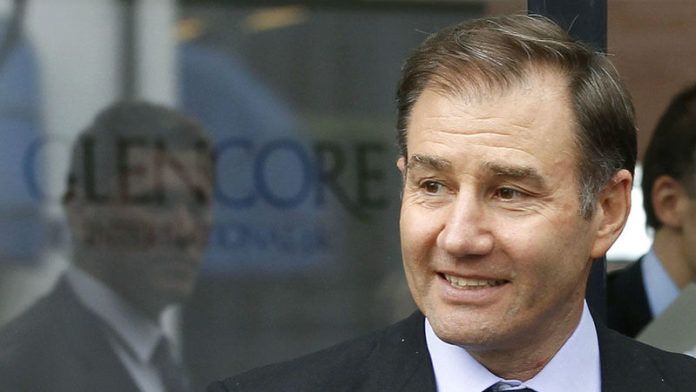
GLENCORE has extended its share buy-back programme by another $1bn despite a 15% revival in its share price since the middle of September.
The UK-listed group said in an announcement today that the extension of the programme would be concluded on February 20, the day before it announced its full year results for the 2018 financial year.
As of 24 September 2018, some 230,240,288 shares valued at $939.13m had been purchased under the existing programme, the company said in an announcement.
“The company will enter into an agreement with an investment bank to conduct the programme on its behalf and if required to make trading decisions concerning purchases under the Programme independently of the company,” it said.
The buy-backs are part of a trend among the world’s largest diversified miners to increase returns to shareholders, said Investec Securities. “With Rio Tinto having announced $7.1bn of buys backs this year and with BHP expected to apply at least part of the $10.5bn proceeds from its onshore US disposal towards buy backs of some form, we are potentially looking at close to $20bn of total buybacks so far this year,” it said in a note today.
“Unlike its peers, Glencore is doing this without disposing of assets, with windfall cash generation from the strong coal prices no doubt assisting,” it said.
Ivan Glasenberg, CEO of Glencore, said on August 9 at the firm’s interim results presentation – in which the firm reported a 12% improvement in basic share earnings of 19 US cents/share (2017 H1: 17 US cents/share) – that in the absence of enticing merger and acquisition opportunities, “… the best thing we could do now is return money to shareholders or, through share buy-backs”.
CFO Steve Kalmin added: “I want to see how the world looks over the next month or two before making any decisions. But we don’t have to wait until February. We may have an opportunity to say more [about shareholder returns] in November/December”. Analysts had expressed disappointment at the time Glencore had declined to extend the buy-back programme or announce an increase in the payout.
Shares in Glencore have under-performed its peer group in the year-to-date. Despite the recent improvement in its valuation, the share is nonetheless 16% weaker since January which compares to gains for Anglo American (8%), Rio Tinto (3.4%) and BHP (9%). The concerns over political risk in the Democratic Republic of Congo and a US Department of Justice investigation into certain business activities are hanging over the stock.
“This is a positive development in our view as the majority of the investors we had talked to were expecting an additional buy-back starting in 2019,” said Goldman Sachs.
The extension of the buy-back will not come as a massive surprise. RBC Capital Markets said in August that the group would impose some kind of return in order to bridge the disconnect between its highly cash generative performance and the share price. “The company is trading at a substantial discount to peers on a free cash yield basis with a strong balance sheet,” the bank said. “This should open up more compelling opportunities for buybacks into 2019 or other options to compress this valuation disconnect.”
Investec Securities said the improvement in thermal coal prices had added extra impetus to Glencore’s cash generating ability. Coal prices are possibly $20 per tonne higher than might have been expected and on 65 million tonnes in the second half of the financial year it was worth $1.3bn of extra revenue, it said.










